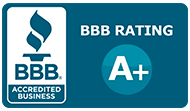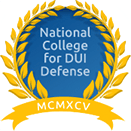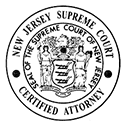Former Middlesex County Prosecutors That Defend Juvenile Crimes Like Burglary, Aggravated Assault, Robbery, Drug Possession, CDS Distribution, Sexual Assault and Terroristic Threats in Spotswood
It is terribly unfortunate when anyone gets pulled into the criminal justice system. It is all the more tragic when that person is a minor who is charged with a juvenile offense. Fortunately, recent statistics seem to indicate that juvenile crime is trending downward. However, a criminal case for any young person will have a dramatic impact on that child’s life. If your child has been charged with a juvenile offense such as robbery, aggravated assault, terroristic threat, burglary, drug possession, sexual assault or distribution of CDS, it is important that you do whatever is necessary to minimize the impact that charge will have on your child’s life. In order to do that you need a criminal defense attorney who understands the juvenile court and this area of law inside and out.
The attorneys at the Law Offices of Jonathan F. Marshall have extensive experience in defending juvenile cases. These lawyers also have a significant track record of success in avoiding convictions and getting children back on the road to success, putting an offense behind them. Call our office anytime of day or night 732-246-7126 for a free initial consultation. A lawyer is ready to discuss your son or daughter’s charges now.
Spotswood Attorneys Guiding You Through the Juvenile Justice Maze
Juvenile criminal cases are not handled in the criminal court system but rather in the Juvenile Division of the Middlesex County Superior Court in New Brunswick. The Middlesex County juvenile justice system is a part of the county’s family court, and operates separate and apart from the criminal system. Here are some frequently asked questions to assist you in understanding your child’s juvenile offense charges.
- What is a juvenile offense? A juvenile offense is any crime on the books that is committed by a person under the age of 18. Yet, a crime committed by a minor is treated differently than when it is committed by an adult. First, the offense is called something different. While adults commits a “crime,” juveniles are considered to be “delinquent.” The difference in terminology is an acknowledgment that young people are able to more easily turn their lives around, and therefore it is helpful not to call them “criminals.” Second, juvenile cases are handled in Family Court not Criminal Court.
- What is the difference between Family Court and Criminal Court? Most juveniles will have their cases heard in the Family Division of the Superior Court in Middlesex County. In the Family court, there is no jury. The judge makes all decisions regarding a juvenile case. In addition, the case is not considered a criminal case, but rather a “juvenile delinquency action.”
- Do I have to have an attorney in juvenile court? Every child facing a juvenile delinquency action must be represented by an attorney. That means that you must retain an attorney for your child. If you cannot afford an attorney, then you should inform the court, and the judge will appoint a public defender for your child.
- Are minors ever tried in adult criminal court? Juvenile offenders are viewed differently than adult criminals. Yet, there are some crimes that are so serious that, even though they are committed by a minor, the prosecutor will ask the court to try the case in adult court. That process is called “waiving up” a juvenile to criminal court. The penalties in adult court are far more substantial. Your attorney should aggressively challenge any attempt to waive a juvenile up into adult court.
- Can police officers question a juvenile without a parent present? Police officers should not question a juvenile unless a parent or guardian is present. Only in rare circumstances could a police officer question an unsupervised juvenile in connection with a juvenile delinquency matter.
- Are children detained in jail pending trial? No, but there is a chance a child could be placed in a detention center pending trial. There is no right to bail in the juvenile court system. When a juvenile is charged in a delinquency action, the decision must be made whether to release the child to his or her parents or to place the child in a juvenile detention center. This decision is based on how serious the offense is, if there is a history of the juvenile failing to appear in court, and if any person would be put in danger by releasing the juvenile. Having an attorney on your side at the time that decision is made can keep your child out of juvenile detention.
- Is there a chance that a juvenile can avoid a whole court proceeding? Your attorney can try to have your child’s case diverted away from the courts. When the police are deciding on how, and whether, to charge a child for an offense, an attorney could intervene with alternative resolutions – like providing restitution, an apology, etc. Also, a Juvenile Conference Committee, made of up members of the community, could be called on to resolve a matter, rather than have it go before a Family Court judge.
Penalties for Juvenile Offenses in Middlesex County
Typically, a judge can sentence a juvenile to detention for one year on a fourth-degree crime, two years on a third-degree crime, three years on a second-degree crime, and four years on a first-degree crime.
Spotswood Juvenile Lawyer
If your child gets involved with the wrong crowd, and finds himself or herself charged with a juvenile offense, our attorneys are here to help you. The qualified juvenile lawyers at the Law Offices of Jonathan F. Marshall have defended countless juveniles in at the Middlesex County Superior Court and possess the know-how needed to mount a potent defense. To speak to a lawyer who can explain the juvenile criminal process, your options in defending the charges and how we can help you, contact our firm. An attorney is available at 732-246-7126 to immediately assist you.
Additional Spotswood Pages & Posts
- Spotswood Simple Assault Attorney
- Spotswood Harassment Defense Lawyers
- Spotswood NJ Aggravated Assault Lawyer
- Spotswood Criminal Attorneys
- Spotswood New Jersey Marijuana Lawyers
- Spotswood Drug Possession Attorney
- CDS Distribution Defense Lawyer in Spotswood New Jersey













